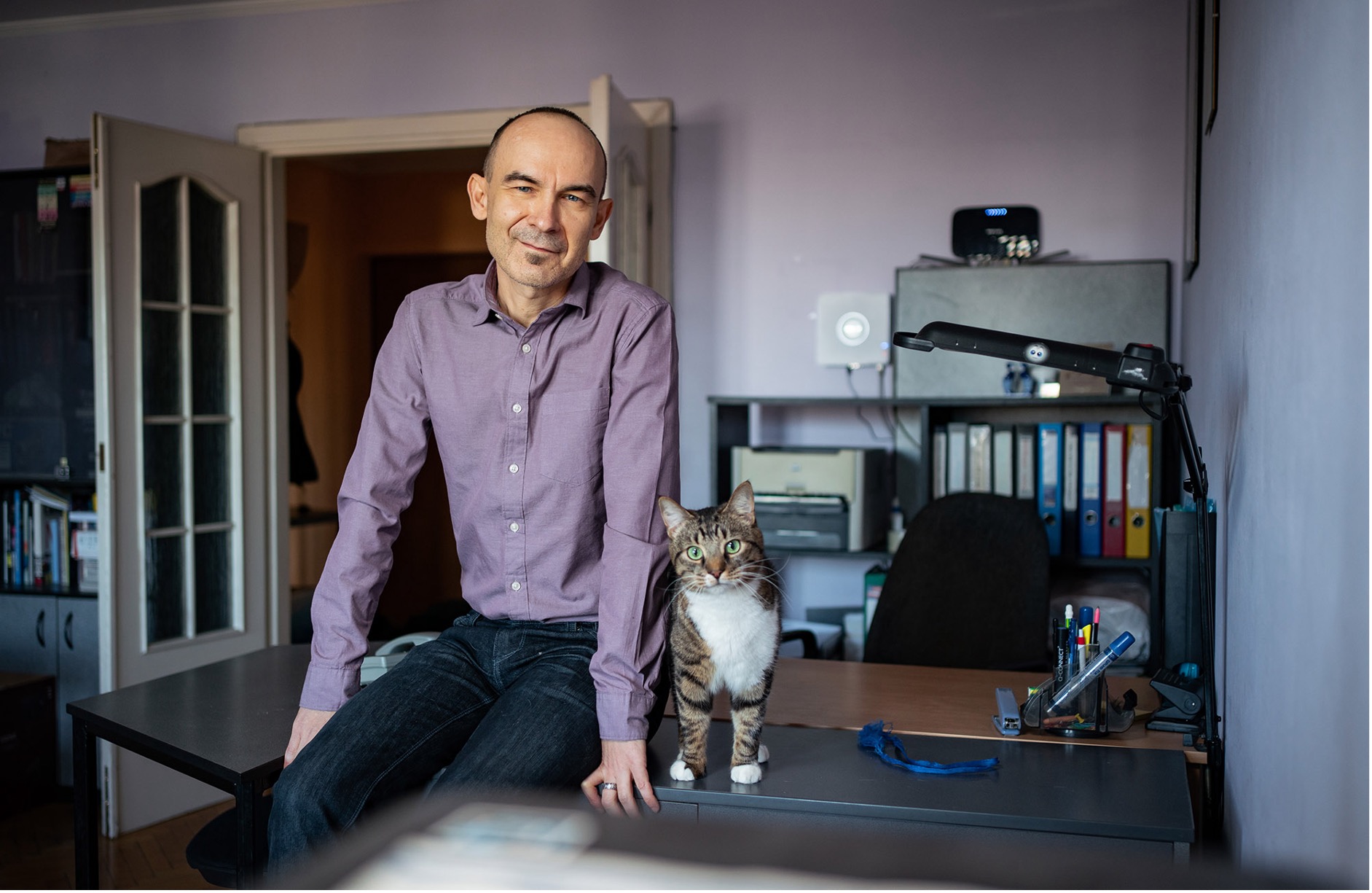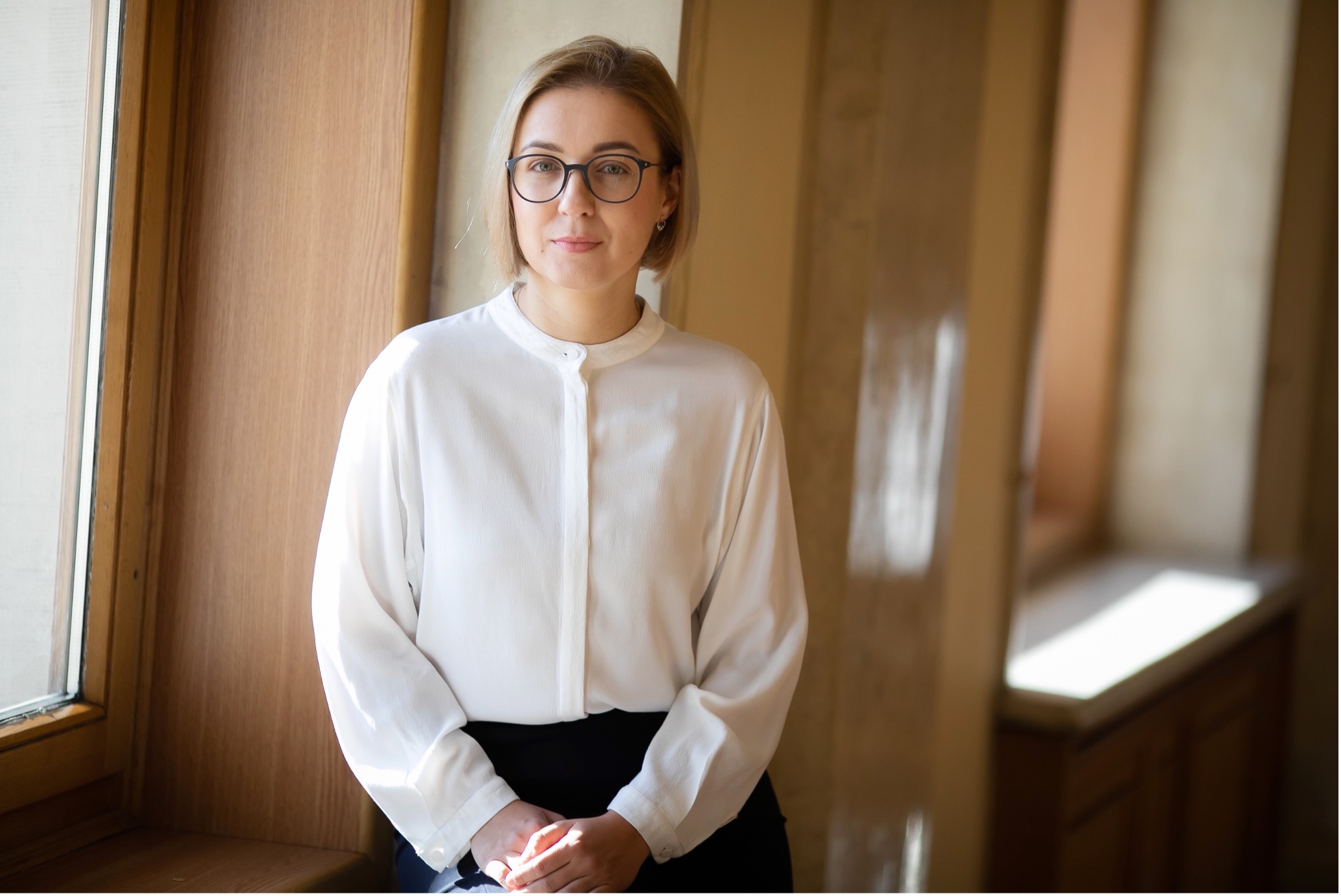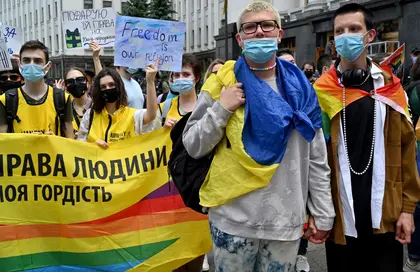Legal rights for same-sex partners in Ukraine continue to come closer as a pro-LGBTQ petition achieved the 25,000 signatures, which triggers the requirement for a Presidential response.
The petition, initiated by 44 non-government organisations (NGOs), is in support of draft legislation on ‘registered partnerships’ that is being considered by the politicians of the Verkhovna Rada – Ukraine’s parliament.
JOIN US ON TELEGRAM
Follow our coverage of the war on the @Kyivpost_official.
LGBTQ spokespeople, both inside and outside the country, say the bill, being progressed during Russia’s full-scale war on Ukraine, shows Ukrainians are becoming more inclusive and respectful of LGBTQ individuals, who may not only represent between 2% and 10% of Ukraine’s population, but also serve in its military.
Bill 1903, if passed, would provide LGTBQ partners with greater legal status and certainty in Ukrainian society.
Andriy Kravchuk, a long-term Ukrainian LGBTQ activist and an advocacy expert with the ‘Nash Svit’ Center (Our World), a LGBTQ non-government organization, explained the problems facing LGTBQ couples that the bill aims to fix.
“From a state perspective, same-sex partners are currently strangers to each other,” Kravchuk said by email to Kyiv Post. “They don’t have any of the rights of a relative or a family member.”

Kravchuk listed existing situations such as:

Tartars: Restoration of Crimea Must Remain in Ukraine Victory Plan
· No financial assistance after a partner’s death, including if they die as a result of military service;
· No inheritance without a will;
· Where there is a will, a 6.5% tax applies that does not apply to those in ‘conventional’ relationships or their family members;
· No right to be informed if a partner is admitted to hospital or to be consulted about their treatment;
· No right to determine arrangements following the death of their partner, and;
· No ability to take home loans together.
Nash Svit has estimated that there are currently up to 200,000 same-sex partnerships in Ukraine who would potentially benefit.
Inna Sovsun, a parliamentarian from the opposition ‘Holos’ Party initiated the ‘registered partnerships’ bill in March 2023, via the parliament’s legal affairs committee.
The bill is co-signed by 18 other members of parliament from across parties. That includes several prominent politicians, including the parliamentary chairs of the foreign policy, humanitarian and information policy, and economic development committees. This was pointed out in a Facebook post yesterday by Dmytro Gurin, a ‘Servant’ lawmaker and co-author of the bill.
Currently, the bill is going through a consultation process, by which 13 other parliamentary committees will consider it, before it being returned to the entire parliament voting.
Sovsun, the only member of parliament to attend Kyiv’s last Pride March in September 2021, reports that, while the debate at committee level has been “largely favorable”, there is still a “gap” between parliamentary and public attitudes to LGBTQ issues.

“Some members of parliament think [the bill] is political suicide. In fact, it’s not only morally right, it’s politically smart. However, many of our politicians are more conservative than the public,” Sovsun said.
She pointed to polls that show that the majority of Ukrainians support LGBTQ rights and that young people overwhelmingly support them.
A survey conducted in May 2022, by the Kyiv International Institute of Sociology (KIIS) commissioned by Nash Svit, showed how attitudes of Ukrainian society towards LGBTQ people had changed in recent years. Support for registered civil partnership for same-sex couples increased from around 5% in 2016 to 24% in 2022, while the number of those who are neutral about the issue increased from around 18% to 27% over that period. In 2016, 69% were opposed to same-sex partnership reform; in 2022, opposition had fallen to 42%.
Similar results were also obtained in a survey by the National Democratic Institute in January 2023. 56% generally agreed that LGBTQ people have the right to register family relationships with 24% disagreeing. 44% generally supported even the right of same-sex partners to enter into a regular marriage while 36% were against.
“There’s been significant progress. I wouldn’t have had a single co-signatory five years ago,” Sovsun said. “Now, community acceptance is growing. LGBTQ people are fighting for Ukraine in the military. There is a ‘values contrast’ between Ukraine and Russia’s official homophobia. And, it’s an expectation for being part of Europe,” she said.
Prominent British LGBT commentator and activist Peter Tatchell put it plainly to Kyiv Post. He said that “LGBTQ people, who serve their country, should have the same legal rights as married straight military personnel and their partners.”

Beyond the legal and political intricacies, the bill is a major milestone for many who support greater LGBTQ rights in the historically conservative and, often discriminatory, Ukrainian society. They are adamant it shows that Ukrainians are becoming more inclusive. It could be said that’s partly due to an unlikely and unintentional ‘ally’ - Vladimir Putin.
Or, as Sovsun said to Politico in March: “I actually think that the Russians did a good job in terms of raising awareness and changing attitudes towards the LGBTQ community in Ukraine. The more Russia insists on [homophobia] being a part of their state policy, the more rejection of this policy [there] is from inside Ukraine.”
Andriy Kravchuk confirms attitudes are changing for that same reason.
“I don't think [Ukraine is becoming more inclusive] - I KNOW IT,” Kravchuk wrote in his email to Kyiv Post. “The probable reasons are obvious. Ukraine is fighting against a regime which openly declared homophobia and transphobia as one of its fundamental ‘values’.”
There are, however, some questions about the current bill: will it actually pass and when, and; does it ‘go far enough’, in terms of LGBTQ rights reform?
While no one seems willing to offer a specific timetable, some believe there are drivers to enable adoption of the bill within 2023. Kravchuk argues the bill is now formally registered on the Verkhovna Rada’s work agenda for this year. He adds that, according to the Ukrainian government’s own 2021 National Human Rights Strategy, it is obliged to forward such legislation for consideration by December.
For her part, Sovsun notes parliament’s hand may be moved for it by developments outside Ukraine and outside of its control.
In 2014, Nash Svit filed a complaint with the European Court of Human Rights regarding the absence of any way to legally recognize same-sex family partnerships in Ukraine. According to Kravchuk, the case against the Ukrainian government is now being prepared for consideration, potentially in 2023.
“After the recent decision of [that court] in ‘Fedotova and others v. Russia’, both our lawyer in the Court and the Ministry of Justice are sure that the [Ukrainian] state will lose the case we have brought. That would provide another advocacy tool to make the Ukrainian authorities adopt a law on civil registered partnership for same-sex couples,” Kravchuk said.
Tatchell further underlines that LGBTQ rights are on the road of Ukraine’s entry into Europe.
“The right to marry is part of the EU's Charter of Fundamental Rights and Freedoms. If Ukraine wants to be a member of the EU, it will have to agree to some form of legal recognition for same-sex partners,” he said.
Sovsun, though, is somewhat philosophical about her own bill’s timing. In her estimation, there may not be enough ‘yes’ votes in the Verkhovna Rada. She argues that the journey is as important as the destination and that consensus will eventually emerge.
“Part of a parliamentarian’s job is to actively raise awareness about key issues and to educate and explain their complexity. It’s important to do the right thing in that sense. If they are prepared and know their facts and work hard, politicians should not be afraid of what’s controversial,” Sovsun said.
In terms of whether Ukraine’s bill is adequately inclusive, Tatchell said that “registered partner legislation would be important progress. It would give same-sex couples some legal recognition and protection. But it is not marriage equality, which is the gold standard.”
“It is a step in the right direction,” he continued. “However, separate and different laws for LGBTQ and straight couples are not ideal. They are a form of sexual apartheid in law.”
In Ukraine, the views of some LGBTQ stakeholders seem more incremental than ideological. Nash Svit’s Kravchuk notes that “from the political and practical viewpoint, it is now simpler and more reasonable to adopt a law on marriage-like civil partnership and to leave the issue of full-fledged same-sex marriages for the future.”
Additionally, as it’s now written, the current bill does not require changes to Ukraine’s Family Code which defines marriage as “a family union of a woman and a man”. It thus currently makes it legally impossible for there to be a marriage between persons of the same sex.
Sovsun takes a broader perspective on the bill and the parliament’s role.
“We should be creating the conditions where Ukrainians can be happy. We shouldn’t tell them how to be happy, but we should foster the opportunity,” Sovsun said.
“I started on this bill because of love. For example, I love my husband, who is currently at the front. It’s only respectful that LGBTQ people in similar situations should have their loving relationships with their own partners and their rights appropriately recognized.”
You can also highlight the text and press Ctrl + Enter






